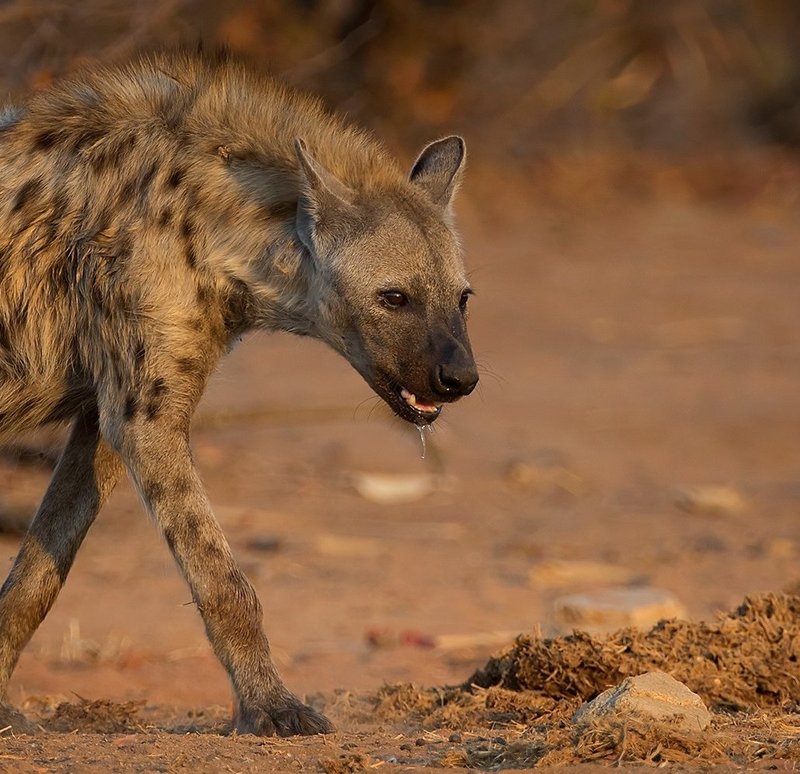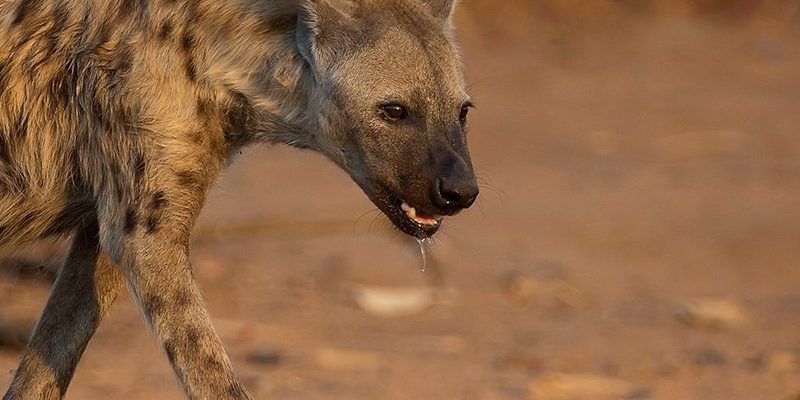
Spotted hyenas are highly social and intelligent mammals known for their unique vocalizations and hunting strategies. Often seen as scavengers, they play a vital role in their ecosystems, controlling prey populations. However, their reputation for scavenging food can lead to misconceptions about their behavior and potential danger. So, sit back with your coffee as we unravel the truth about spotted hyenas and their interactions with humans.
Understanding the Spotted Hyena’s Behavior
Spotted hyenas are much more than the laughing scavengers you might picture. They are incredibly social animals, living in groups called clans that can range from a few to over 100 members. These clans have complex social structures, often led by females. This matriarchal society means that female hyenas are larger and more dominant than males, which is quite unusual in the animal kingdom.
Hyenas are often seen hunting in packs, showcasing their teamwork skills. They can take down prey much larger than themselves, like wildebeests or zebras, thanks to their strength and coordination. This hunting ability challenges the idea that they primarily scavenge for leftovers. In fact, they are skilled predators with a significant part of their diet coming directly from their hunts.
You might be wondering how this social structure affects their interactions with humans. Well, their intelligence and adaptability can sometimes lead them into conflict with people, especially in areas where their habitats overlap with human settlements.
Are Spotted Hyenas Aggressive Towards Humans?
The question many people ask is: can spotted hyenas be aggressive toward humans? The short answer is: not typically. Hyenas tend to avoid humans whenever possible. After all, they understand we’re a threat. In general, they’re more afraid of us than we are of them.
However, there are exceptions. If a hyena feels cornered, threatened, or is protecting its young, it might resort to aggression. For instance, in places where food is scarce, like during droughts, they might be more willing to approach human settlements in search of food. This can escalate into dangerous encounters, especially if they feel their territory or resource is being threatened.
It’s also worth noting that some locals may view hyenas as pests, especially if they raid livestock. This can lead to retaliation against them, further complicating the relationship between humans and these creatures. Overall, while they have the capacity to be dangerous when provoked, it’s rare for hyenas to actively seek out human confrontation.
What Do Hyenas Typically Do When Encountering Humans?
So, what happens when a hyena comes across a human? Generally, their instinct is to flee. These animals are naturally wary of humans and prefer to keep their distance. If you ever find yourself in the wild and spot a hyena, it’s best to remain calm. Most likely, it will trot away, looking for a safer place.
In some cases, especially during nighttime when they are most active, spotted hyenas might approach human areas if they smell food or hear noise. If you’re camping or living near their habitat, keep food securely stored and avoid attracting them.
Here’s a tip: if you encounter a hyena while hiking or exploring, stand tall, make loud noises, and slowly back away. This establishes that you’re not prey and helps maintain a respectful distance between you and the animal.
Comparing Spotted Hyenas to Other Predators
When thinking about dangerous animals, it’s helpful to compare spotted hyenas to other well-known predators like lions or crocodiles. Lions are certainly more socially aggressive and known for territorial defense. Meanwhile, crocodiles can be incredibly dangerous in or near water and often ambush their prey.
Spotted hyenas, on the other hand, rely on their intelligence and social structures instead of sheer aggression. Here’s how they stack up:
- Lions: More likely to confront humans if they feel their territory is threatened.
- Crocodiles: Ambush predators that can be very dangerous near water sources.
- Spotted Hyenas: Typically avoid confrontation and are more opportunistic.
Understanding these differences helps clarify why spotted hyenas are often misunderstood. They may have a fierce appearance, but they are more about survival and social dynamics than aggression.
Why Misunderstandings About Hyenas Persist
The ongoing myths about spotted hyenas can often be traced back to folklore and media portrayals. Movies often depict hyenas as villainous, reinforcing negative stereotypes that don’t align with their actual behavior. This can lead to misunderstandings about their role in the ecosystem, making them seem more dangerous than they are.
Additionally, their unique vocalizations—often described as laughter—can add to a sense of menace. It’s a sound that can be unsettling, especially when heard at night. Yet, this “laughter” is a form of communication among clan members. It’s more about social interactions than any intention to threaten humans.
Educating oneself about their behavior and the role they play in the ecosystem can help dispel these myths. By spreading accurate information, we can foster a better understanding and coexistence with these remarkable creatures.
Steps for Coexisting with Spotted Hyenas
If you find yourself living near spotted hyenas or visiting their habitat, there are simple steps you can take to ensure your safety and that of the hyenas. Here’s how to coexist peacefully:
1. Secure Your Food: Keep food in airtight containers and avoid leaving scraps outside. This reduces the chance of attracting hyenas.
2. Avoid Nighttime Activities: Since hyenas are most active at night, try to stay indoors after dark, especially in areas known for hyena activity.
3. Educate Others: Share information about spotted hyenas and their behavior with friends and family. The more knowledgeable everyone is, the better relationships we can build with these animals.
4. Use Caution While Hiking: If wandering in hyena territory, travel in groups and make noise to alert hyenas of your presence.
By following these steps, you can help create a harmonious environment for both yourself and the spotted hyenas.
In conclusion, while the spotted hyena can be dangerous under specific circumstances, the reality is they typically avoid humans. Their intelligence, social behaviors, and hunting skills make them fascinating animals rather than outright threats. Misunderstandings can create fear, but by educating ourselves and others, we can appreciate these creatures for their role in the ecosystem.
So, the next time you hear the distinctive call of a hyena, remember, they’re more about survival and social bonds than being menacing. Let’s strive for a world where we can respect and coexist with all creatures, including the misunderstood spotted hyena.

